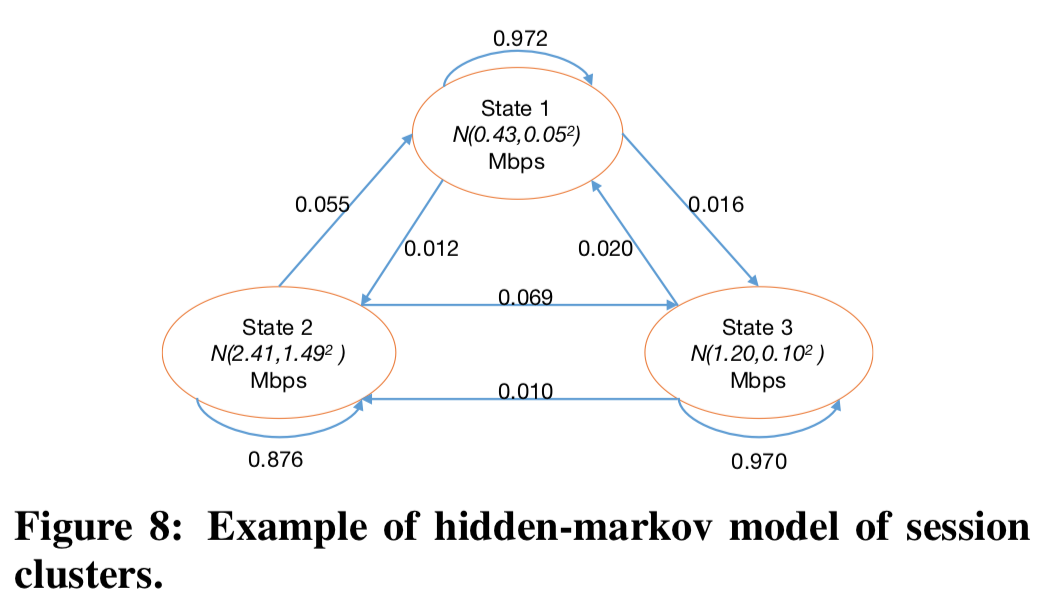- Link2Paper
- [Author: Yi Sun et al.]
- [Keywords: Multimedia streaming, Transport protocols, Network measurement]
Motivation
Bitrate adaptation is critical to ensure good quality-of- experience (QoE) for Internet video. Several efforts have argued that accurate throughput prediction can dramatically improve the efficiency of:
- initial bitrate selection to lower startup delay and offer high initial resolution
- midstream bitrate adaptation for high QoE.
However, prior ef- forts did not systematically quantify real-world throughput predictability or develop good prediction algorithms.
Contribution
- Insights from iQiYi dataset w/ 20M+ sessions:
- Sessions sharing similar key features (e.g., ISP, region) present similar initial throughput values and dynamic patterns;
- There is a natural “stateful” behavior in throughput variability within a given session.
- Based on these insights, the authors develop CS2P, a throughput prediction system which uses a data-driven approach to learn
- clusters of similar sessions
- an initial throughput predictor
- a Hidden-Markov-Model (HMM) based midstream predictor modeling the stateful evolution of throughput

- Development of a prototype system and show using trace-driven simulation and real-world experiments:
- CS2P outperforms existing prediction approaches by 40% and 50% in terms of the median prediction error for initial and midstream throughput
- CS2P achieves 3.2% improvement on overall QoE and 10.9% higher aver- age bitrate over state-of-art Model Predictive Control (MPC) approach [1], which uses Harmonic Mean for throughput prediction.

Discussion
Limitations
- Proprietary dataset from iQiYi :/
- Off-line training and online prediction might not be general enough


Related work
Network function models effectively reason about network configuration
A bunch of listed papers on the top right paragraph in the first page. Reference in the original paper [24, 25, 30–32, 38, 39, 46, 52, 55, 59].
NF verified written in Click [2]
Dobrescu, M., and Argyraki, K. Software Dataplane Verification. In Symp. on Networked Systems Design and Implem. (2014) [1]
